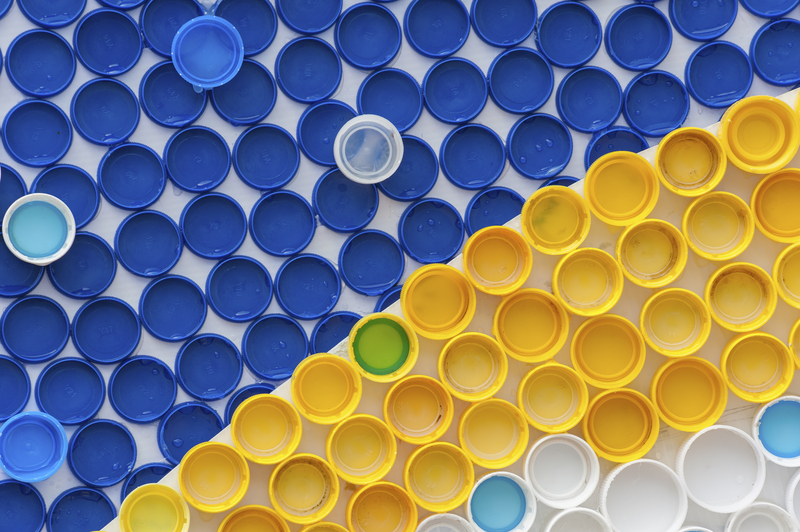Easy and Responsible PPE Waste Disposal Methods Everyone Can Use
Protective Personal Equipment (PPE) waste, such as face masks, gloves, and face shields, became an inseparable part of our daily lives since the global pandemic. With increasing usage, responsible PPE waste disposal methods have become essential to avoid environmental pollution and potential health risks. In this comprehensive guide, discover effective, simple, and eco-friendly techniques for disposing of PPE waste--methods that everyone, at home or in the workplace, can easily adopt.
The Rising Challenge of PPE Waste Management
Proper disposal of Personal Protective Equipment is a pressing environmental and public health issue. Unlike organic or general waste, PPE often contains materials that can be hazardous if not managed correctly. Used masks, gloves, and face shields may also harbor viruses or bacteria, making their disposal a matter of public safety.
Why does responsible PPE disposal matter?
- PPE waste can contaminate soil and water, impacting wildlife and human health.
- Improper disposal, such as littering, can spread infection, especially during outbreaks.
- Many PPE items contain plastics that are not biodegradable, contributing to long-term pollution.
Understanding how to dispose of PPE correctly can dramatically reduce these risks and help build a cleaner, healthier environment for all.

Understanding Different Types of PPE and Their Waste Disposal Needs
PPE comes in several forms, each requiring specific disposal considerations:
- Face Masks: Often made from multiple plastic or fabric layers.
- Gloves: Usually latex, nitrile, or vinyl.
- Face Shields and Goggles: Composed mainly of plastic.
- Protective Gowns: Disposable plastic or reusable fabric types.
Challenges With PPE Waste
Single-use PPE can clog waste streams and contribute to microplastic pollution. Reusable PPE reduces waste but requires proper cleaning and eventual responsible disposal. Understanding these differences is the first step toward sustainable PPE waste management.
Easy PPE Waste Disposal Methods for Everyone
Whether you're at home, work, or out in the community, following simple PPE disposal methods can make a big difference.
1. Separate PPE Waste From General Waste
Segregation forms the cornerstone of responsible PPE waste management. By separating PPE waste, you prevent contamination and ensure safer handling down the line.
- Keep a dedicated bin or bag for used PPE items--label it clearly as "PPE Waste".
- Do not mix PPE waste with recyclables or regular trash.
- Seal the bag tightly before placing it in your external waste collection bin.
2. Use Designated Waste Bins
Many communities and organizations now provide specific bins or collection points for PPE waste disposal. Take advantage of these local resources to ensure responsible handling.
- Look for bins marked "Biohazard," "PPE Waste," or "Medical Waste."
- If unavailable, create your own system with a strong, puncture-resistant bin liner.
3. Responsible Disposal of Face Masks and Gloves
Face masks and gloves need special attention due to potential contamination:
- Carefully remove masks and gloves without touching the outside surfaces.
- Place them directly into your dedicated PPE waste bin.
- Wash your hands thoroughly with soap after handling used PPE.
Never throw masks or gloves on the ground or leave them in shopping carts.
4. Consider Reusable PPE Where Practical
Switching to reusable options, such as washable cotton masks or fabric gowns, can significantly minimize your contribution to PPE waste. Always follow manufacturer guidelines for cleaning and disinfection before reuse.
- Use hot water (at least 60?C or 140?F) and appropriate detergent for washing.
- Inspect regularly for wear and replace as needed.
5. Engage in Community PPE Waste Programs
Many cities now offer PPE-specific waste collection or recycling initiatives. Get involved and encourage others to participate.
- Contact your local waste management authority or check their website.
- Look for drop-off locations at pharmacies, hospitals, or community centers.
6. Recycle Where Possible
Some PPE components may be recyclable if they are not contaminated and if your local recycling program accepts them:
- Certain plastic face shields can be sanitized and recycled.
- Check with your municipality or a local recycling center to confirm their rules.
Never place contaminated items in regular recycling streams.
PPE Waste Disposal for Special Environments
Disposal Methods for Workplaces and Industries
Workplaces that use significant amounts of PPE--healthcare, labs, factories--should provide proper training and resources:
- Install clear signage and PPE-only containers throughout facilities.
- Train staff in safe removal and disposal techniques.
- Arrange regular collection and safe final disposal via licensed medical waste contractors.
PPE Waste Management for Events and Public Spaces
Events, public transport, and shopping areas often generate large volumes of single-use PPE waste. Easy actions include:
- Providing visible disposal stations close to entrances and exits.
- Educating staff and visitors about correct disposal practices.
- Frequently emptying receptacles to prevent overflow and littering.
Why Responsible PPE Waste Disposal is Non-Negotiable
Improper PPE disposal poses several risks:
- Environmental Impact: Plastics from PPE break down slowly, polluting water and soil.
- Health Hazards: Pathogens on used PPE can spread in the community.
- Wildlife Threats: Animals may ingest or become entangled in discarded items.
Adopting responsible PPE waste disposal practices is a small step with a big impact.
Eco-Friendly Alternatives and Innovations
As demand grows, companies and researchers are creating greener PPE options:
- Biodegradable Masks and Gloves: Made from plant-based materials like corn starch or bamboo fibers.
- PPE Take-back Programs: Manufacturers and retailers offering collection and safe recycling.
- PPE-to-Energy Initiatives: Transforming PPE into energy through specialized waste-to-energy facilities.
- Recyclable Face Shields: Designed with a single material for easier post-use recycling.
Ask your supplier about sustainable PPE, and support legislation promoting eco-friendly waste solutions.
How to Encourage Responsible PPE Waste Disposal in Your Community
Change happens collectively. Help raise awareness about easy PPE waste disposal methods by:
- Sharing information on social media and community boards.
- Hosting PPE waste collection drives or challenges.
- Requesting more bins and better signage in public places.
- Supporting local recycling or upcycling initiatives.
If you notice a lack of facilities in your area, consider contacting local government representatives or forming a working group to address the issue.
Conclusion: Taking Action Today for a Cleaner Tomorrow
PPE is a crucial tool for personal and public health, but its widespread use must not come at the environment's expense. By following these easy and responsible PPE waste disposal methods, each person--at home, at work, or in public--can play a vital role in protecting our planet.
- Always separate your PPE waste and dispose of it in clearly marked bins.
- Consider and promote reusable, eco-friendly PPE where possible.
- Take advantage of community initiatives for collection and recycling.
- Spread awareness and advocate for better PPE waste management in your circles.
Every effort, big or small, counts towards a safer, cleaner future. Start making a difference today!

Frequently Asked Questions (FAQ) About PPE Waste Disposal
- Can I recycle my used mask and gloves?
Unless your local program specifically accepts them, used masks and gloves typically cannot be recycled due to contamination risks. Always check your municipality's rules first. - Is it safe to dispose of PPE in household waste?
If no dedicated PPE disposal is available, wrap items securely and place in your general waste. Never flush PPE down the toilet or drain. - Should I wash PPE before disposal?
No. Used single-use PPE should not be washed, as this can cause contamination. For reusable items, follow cleaning instructions before eventual disposal. - Are biodegradable masks as effective as regular masks?
Many biodegradable options meet the same protection standards as their plastic counterparts. Look for reputable brands and certifications.
Further Reading & References
- US EPA PPE Waste Guidelines
- WHO Public Health Advice
- UN Environmental Programme: Sustainable PPE Solutions
By practicing responsible, easy PPE waste disposal every day, we safeguard not just our health, but our planet's future.
